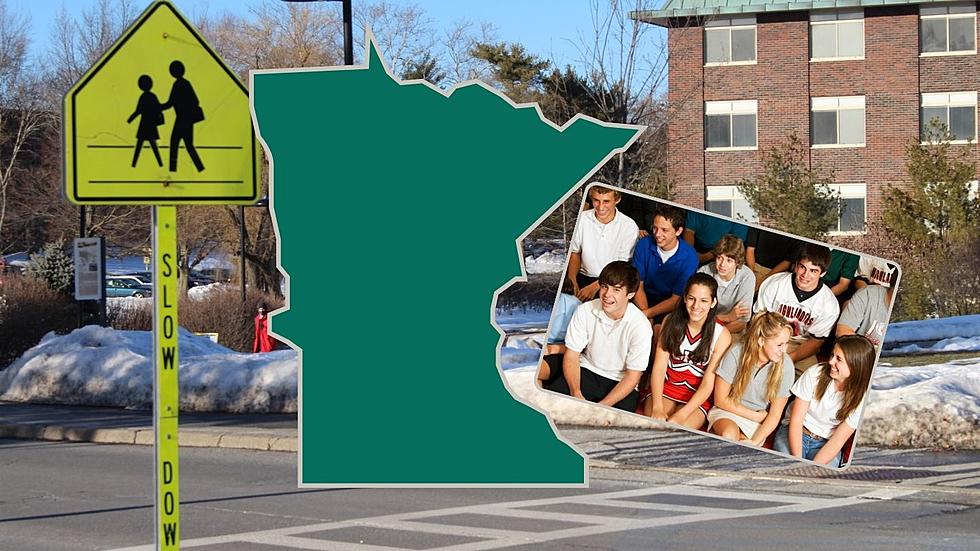
Girl + Boy Bathrooms To Stock Free Menstrual Products In Minnesota Schools
Earlier this year, Minnesota Governor Tim Walz signed a large K-12 education funding package that included a $2.2 billion boost for schools.
One item of note in the 300-page bill is the "Read Act," which has new literacy benchmarks, instruction, and teacher training. This includes new screenings that will be mandatory to assess literacy skills for students in kindergarten through third grade, and additional monitoring if they are not proficient in later years.
The ultimate goal of the "Read Act" is to improve student achievement after test scores that dropped since the pandemic.
Another item of note in the K-12 educational funding package is that beginning January 1, 2024 school districts will be required to provide access to menstrual products at no charge. According to WCCO, girls in South St. Paul and Hopkins advocated for the change after they became frustrated that menstrual products weren't widely available for their classmates who needed them and might not be able to afford them.
Catrin Wigfall with American Experiment says this requirement was one of the first bills given a hearing by both the House and Senate Education Policy Committees this past legislative session.
Districts receive “$2 times the adjusted pupil units of the school district for the school year” to pay for the menstrual products.

Menstrual products include “pads, tampons, or other similar products used in connection with the menstrual cycle.” The new law states that Minnesota public schools must create a plan to make the products available in bathrooms "regularly" used by both girl and boy students.
Wigfall notes that during a House Education Policy Committee on the bill this past January, an amendment to add the word “female” before the student reference was rejected. Had the amendment passed, the bill would've stated, "in restrooms regularly used by female students in grades 4 to 12".
However, bill author Rep. Sandra Feist stated, “Not all students who menstruate are female". Thomas Stinson, a licensed school nurse at Harding High School, added, "This [the amendment] is just another way to divide people in our schools”
Read Now: Proposed Passenger Train From Duluth To Minneapolis Takes Big Step Forward
LOOK: Baby names losing popularity in the 21st century
Gallery Credit: Stacker
